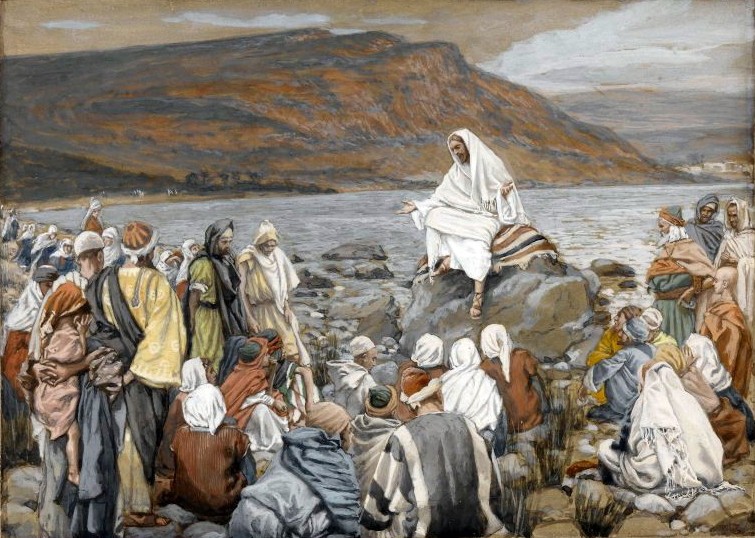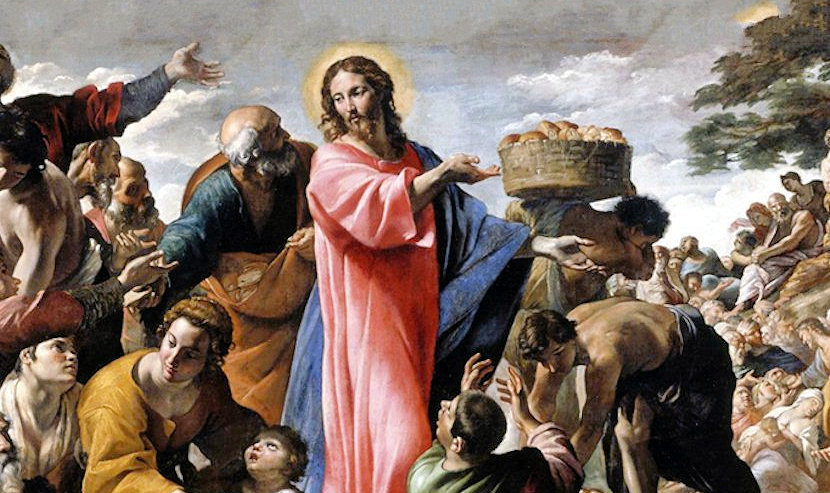U.S. Conference of Catholic Bishops’ Administrative Committee Statement on Sex Abuse Scandals; Committee Releases Actions to be Taken Within Its Authority
September 29, 2018Founder’s Quote: Separation of Powers
October 1, 2018
“Jesus perceived the thought of their hearts”
Author Don Schwager – Scripture: Luke 9:46-50
46 And an argument arose among them as to which of them was the greatest. 47 But when Jesus perceived the thought of their hearts, he took a child and put him by his side, 48 and said to them, “Whoever receives this child in my name receives me, and whoever receives me receives him who sent me; for he who is least among you all is the one who is great.” 49 John answered, “Master, we saw a man casting out demons in your name, and we forbade him, because he does not follow with us.” 50 But Jesus said to him, “Do not forbid him; for he that is not against you is for you.”
Meditation: Are you surprised to see the disciples of Jesus arguing about who is the greatest among them? Don’t we do the same thing? The appetite for glory and greatness seems to be inbred in us. Who doesn’t cherish the ambition to be “somebody” whom others admire rather than a “nobody”? Even the psalms speak about the glory God has destined for us. “You have made them a little lower than God, and crowned them with glory and honor” (Psalm 8:5). Jesus made a dramatic gesture by placing a child next to himself to show his disciples who really is the greatest in the kingdom of God.
What can a little child possibly teach us about greatness? Children in the ancient world had no rights, position, or privileges of their own. They were socially at the “bottom of the rung” and at the service of their parents, much like the household staff and domestic servants. What is the significance of Jesus’ gesture? Jesus elevated a little child in the presence of his disciples by placing the child in a privileged position of honor at his right side. It is customary, even today, to seat the guest of honor at the right side of the host. Who is the greatest in God’s kingdom? The one who is humble and lowly of heart – who instead of asserting their rights willingly empty themselves of pride and self-seeking glory by taking the lowly position of a servant or child.
Jesus, himself, is our model. He came not to be served, but to serve (Matthew 20:28). Paul the Apostles states that Jesus “emptied himself and took the form of a servant” (Philippians 2:7). Jesus lowered himself (he whose place is at the right hand of God the Father) and took on our lowly nature that he might raise us up and clothe us in his divine nature. “God opposes the proud, but gives grace to the humble” (James 4:6). If we want to be filled with God’s life and power, then we need to empty ourselves of everything which stands in the way – pride, envy, self-seeking glory, vanity, and possessiveness. God wants empty vessels so he can fill them with his own glory, power, and love (2 Corinthians 4:7). Are you ready to humble yourself and to serve as Jesus did?
“Lord Jesus, your grace knows no bounds. You give freely to the humble of heart and you grant us freedom to love and serve others selflessly. May my love for you express itself in an eagerness to do good for others.”
Psalm 102:16-21
16 For the LORD will build up Zion, he will appear in his glory;
17 he will regard the prayer of the destitute, and will not despise their supplication.
18 Let this be recorded for a generation to come, so that a people yet unborn may praise the LORD:
19 that he looked down from his holy height, from heaven the LORD looked at the earth,
20 to hear the groans of the prisoners, to set free those who were doomed to die;
21 that men may declare in Zion the name of the LORD, and in Jerusalem his praise
Meditations may be freely reprinted for non-commercial use – please cite: copyright (c) 2018 Servants of the Word, source: www.dailyscripture.net, author Don Schwager
Scripture quotations from Common Bible: Revised Standard Version of the Bible, copyright 1973, and Ignatius Edition of the Revised Standard Version of the Bible, copyright 2006, by the Division of Christian Education of the National Council of the Churches of Christ in the United States of America. Used by permission. All rights reserved. Citation references for quotes from the writings of the early church fathers can be found here.







